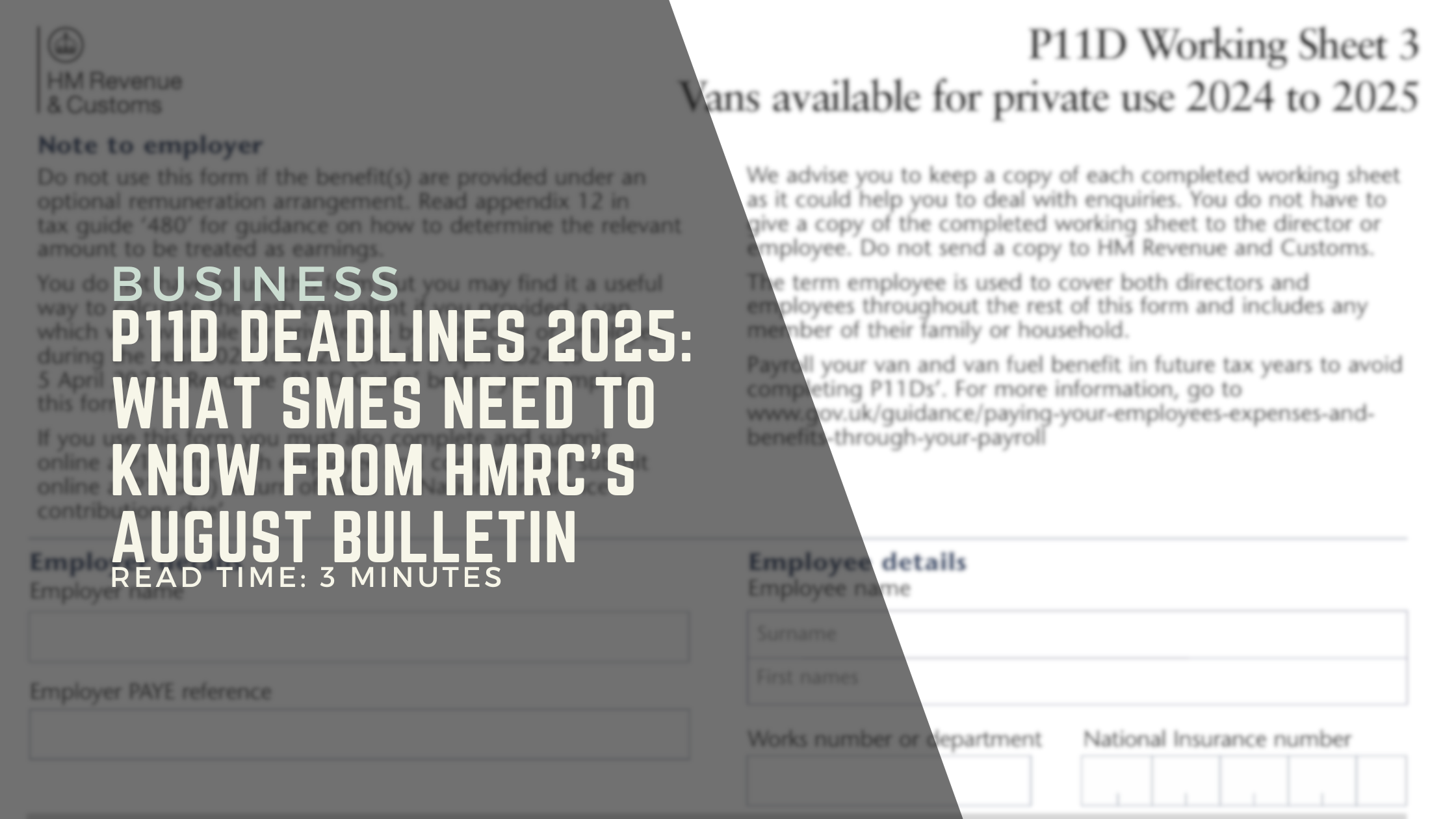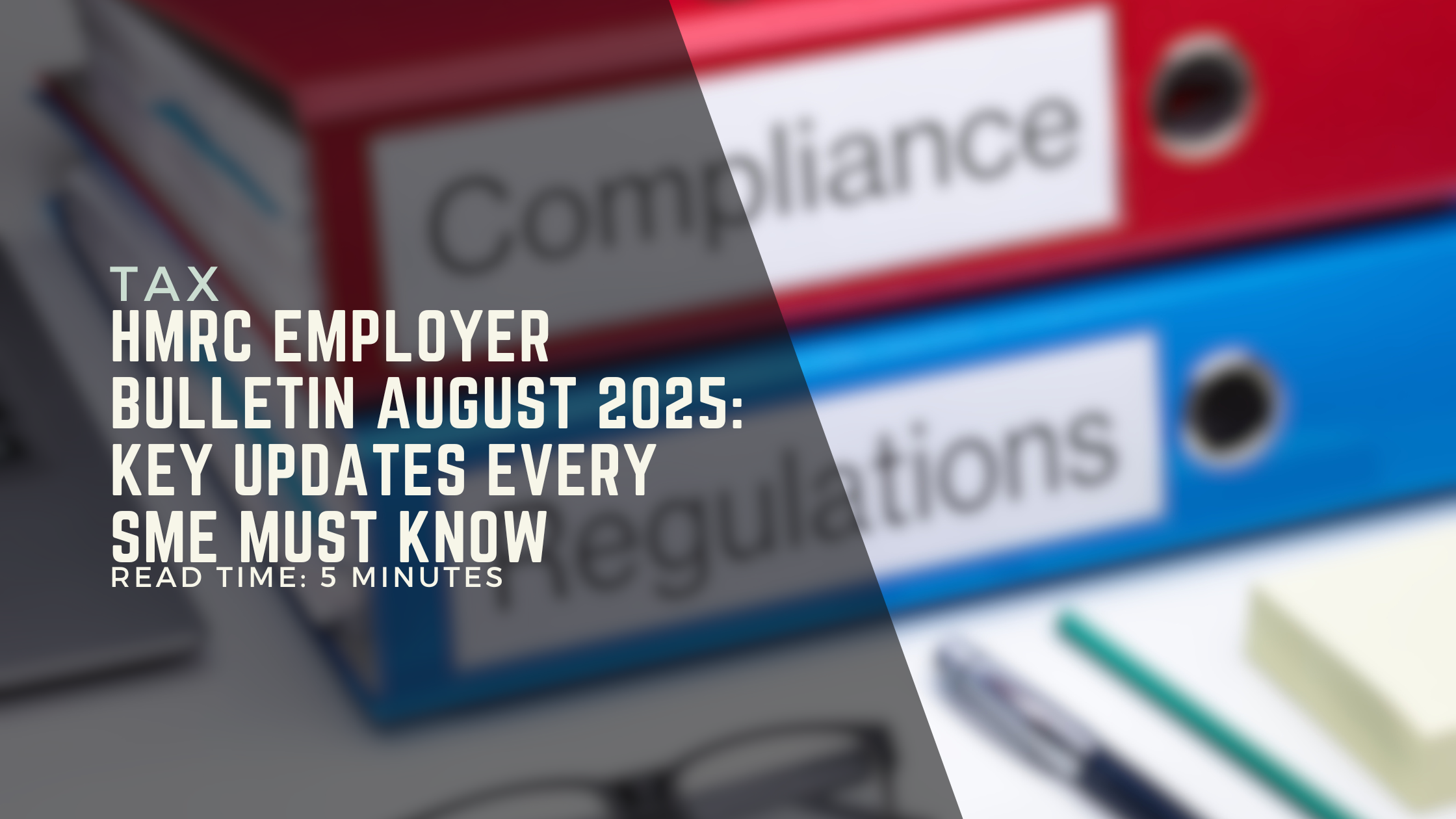The Employment Rights Bill, published with its Implementation Roadmap on 1 July 2025, is one of the most significant overhauls of UK employment law in decades. Its aim is to empower workers, modernise protections, and “make work pay”.
For employees, the Bill promises meaningful improvements: more security, fairer treatment, and stronger workplace rights. But for smaller businesses, the picture is more complicated.
While larger corporates can absorb the changes with HR teams, legal budgets, and economies of scale, SMEs often operate with thinner margins and leaner resources. That raises a central question: are we creating a system that makes it harder for small businesses to stay agile, even though agility is one of their greatest strengths?
Key Reforms in the Employment Rights Bill
Day-One Protection from Unfair Dismissal
Employees will be entitled to protection from unfair dismissal from their very first day.
-
Positive for workers: greater security, less risk of unfair treatment in probation.
-
Challenge for SMEs: less flexibility in trialling staff, greater exposure to disputes from the outset.
Stronger Statutory Sick Pay (SSP)
Eligibility for SSP will be widened to cover more workers.
-
Positive for workers: fairer access to income support when ill.
-
Challenge for SMEs: additional payroll costs, which are harder to spread across a small workforce.
Ending Zero-Hour Contracts
From 2027, workers must be given predictable hours and income.
-
Positive for workers: stability and financial predictability.
-
Challenge for SMEs: less ability to respond quickly to fluctuating demand, especially in sectors like hospitality and retail where flexibility is often essential.
Tackling Fire and Rehire
Employers will face restrictions on dismissing staff and rehiring them on worse terms.
-
Positive for workers: protection against unfair restructuring.
-
Challenge for SMEs: fewer options to adapt contracts when market pressures hit.
Parental Leave from Day One
From April 2026, new parents will be entitled to paternity and unpaid parental leave from their first day in a job.
-
Positive for workers: fairer access to family support.
-
Challenge for SMEs: small teams may find sudden absences harder to cover.
Some union and industrial action measures take effect.
Day-one parental rights introduced.
Ban on zero-hour contracts, with predictable-hours framework enforced.
The Uneven Playing Field
The reforms deliver the same obligations to all employers, regardless of size. A small family business will face the same compliance rules as a multinational with 50,000 employees.
For large corporates, the cost is diluted, absorbed into HR teams, payroll systems, and profit margins.
For small businesses, the burden is much heavier, every additional cost, admin task, or legal risk has a greater impact on cashflow and operational agility.
This raises a legitimate concern: are we designing a one-size-fits-all system that penalises smaller employers disproportionately?
The Importance of Agility for Smaller Businesses
SMEs are the backbone of the UK economy, employing millions and driving innovation. A key reason they thrive is their ability to adapt quickly, whether that’s trialling staff, adjusting hours to meet demand, or reworking contracts during difficult trading conditions.
The Employment Rights Bill rightly seeks to protect workers. But unless the system acknowledges the different realities of smaller businesses, it risks eroding the very agility that makes small businesses resilient, competitive, and capable of creating jobs in the first place.
A more balanced framework could recognise size, sector, or turnover, ensuring compliance without disadvantaging smaller employers.
Winners and Losers
Winners: Workers, who gain stronger protections and more avenues to challenge employers over unfair dismissal disputes.
Neutral to Positive: Large corporates, who can absorb compliance costs more easily and even present the reforms as a boost to their ESG credentials or employee benefits record, when in reality, they are simply meeting the minimum compliance requirement.
Most Impacted: Small businesses, who face the same costly obligations without the same infrastructure, public opinion benefits, or financial cushion.
Fairness Requires Flexibility
The Employment Rights Bill 2025 will transform workplace rights, and for employees, this is undoubtedly progress. But fairness must cut both ways.
If small businesses are to remain the lifeblood of the economy, they need a regulatory framework that allows them to comply without losing their unique ability to adapt and stay agile.
The challenge for policymakers is clear: how do we ensure that workers are better protected while not making small businesses carry a disproportionate burden compared to their larger counterparts?
There is also a wider labour market risk. By making hiring and dismissal far more rigid, especially in sectors where flexibility is essential, hospitality, retail, construction, seasonal work, the Bill could inadvertently reduce the number of legitimate jobs small businesses are willing to offer.
If smaller firms feel exposed to higher risk and cost with every hire, some will hold back on recruitment altogether, and others may drift into the informal labour market. This creates a bigger black-market economy:
Workers (particularly vulnerable groups who may already find formal employment harder to access) end up without contracts, rights, or protections.
HMRC loses revenue as wages go untaxed.
Law-abiding smaller local businesses face unfair competition from those cutting corners.
In other words, the Bill risks pushing jobs off the books, which is worse for employees, worse for the Treasury, and worse for fair employers trying to do the right thing.
Until that balance is struck, SMEs may feel that while the Bill makes work pay for employees, it risks making work harder for the very businesses that employ them, and could ultimately undermine both job creation and compliance.











